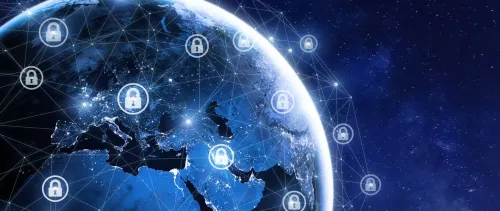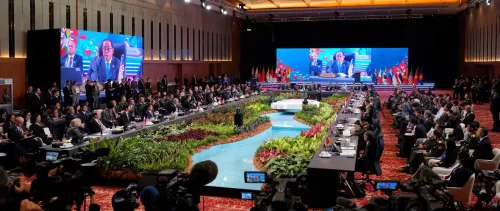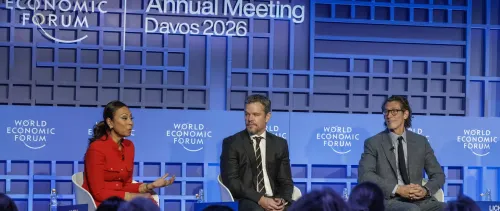
At the current rate, it will take 123 years to close the global gender gap. Image: Getty Images
Related Centres:Centre for the New Economy and Society
- Closing the global gender gap will take 123 years at the current rate of travel – spanning approximately five generations – with disparities in workforce representation, pay and leadership hindering economic growth.
- In 18 economies, the World Economic Forum’s Gender Parity Accelerators are supporting over 1 million women through public-private collaboration and targeted action plans to drive systemic change.
- Partnering with 100+ public sector entities, the accelerators drive reforms in childcare, parental leave pay equity and other policies while engaging 1,500 private sector partners to promote workplace inclusion and business growth.
Gender Parity: An Economic Imperative in a Volatile World
In a time of economic volatility and transforming global political landscapes, advancing gender equality remains key to building more resilient and inclusive economies. As the 2025 Global Gender Gap Report highlighted, gender gaps persist across multiple economic dimensions, from labour force participation to pay and leadership in the public and private sectors.
At the current rate, it will take 123 years – approximately five generations – to close the global gender gap across education, health, economic participation and political empowerment. Parity in economic participation and opportunity is projected to take even longer – 135 years – underscoring the urgent need for action.
The World Economic Forum’s Gender Parity Accelerators have tackled these challenges in 18 economies, including Argentina, Australia, Bahrain, Chile, Colombia, Costa Rica, Dominican Republic, Ecuador, Egypt, Guatemala, Honduras, Japan, Jordan, Kazakhstan, Kenya, Malaysia, Mexico and Panama. In Latin America, the accelerators are run in collaboration with the Inter-American Development Bank and Agence Française de Développement (AFD).
Through targeted action plans, these accelerators have supported over 1 million women in accessing economic opportunities and have mobilised over $24 million in resources to address systemic barriers to gender parity. During 2024, action plans were launched in Ecuador, Honduras and Guatemala.
These efforts are part of the Global Gender Parity Sprint 2030, hosted by the Forum’s Centre for the New Economy and Society. This global platform brings together businesses, governments and international organizations to accelerate gender parity as a basis for economic resilience and innovation.
The Sprint is engaging with three key global transformation processes, in care, in tech, and in the green transition, to identify pathways for labour markets, and industries to ensure a level playing field.
As part of this effort, accelerators operate on an 18-month timeline, enabling governments, private sectors and 50-100 of the largest national employers in the participating countries to redefine workforce strategies, embed gender parity principles in their operations and promote inclusion through technology.
Spotlight on Accelerator Impact Solutions 2025
The Gender Parity Accelerators are championing innovative programmes tailored to each country’s context.

Strengthening National Parity Policies in Partnership with the Private Sector
In Ecuador, the accelerator action plan launched in July 2024 is supporting the implementation of the Violet Economy Law, a gender parity framework engaging over 150 businesses and industry associations including DHL, Nestlé, Unilever, Holcim, Banco Pichincha and Banco Guayaquil to promote workplace inclusion and pay equity. Through such national efforts, women’s participation in small businesses has risen by 33%, and in large corporations, by 23%.
Through work in the financial services industry, the Accelerator has advanced public-private action on financial inclusion and entrepreneurship, with 4000 women accessing loans under the Credito Violeta program and 15,000 women benefiting from business and entrepreneurship training.
The accelerator has also supported Ecuador in its efforts to implement the actions of its first gender-balanced cabinet.
Empowering Women Entrepreneur Ecosystems
Honduras launched its accelerator in July 2024. A public dashboard developed by the initiative now consolidates information on services available to women entrepreneurs, improving access to resources. In addition, accelerator training programmes supported by Banco de América Central (BAC) and CARE International have equipped multiple cohorts of women with financial literacy skills. Meanwhile, the female leadership programme is set to graduate its inaugural class in 2025, fostering future women leaders.
Through the Wexport programme Jordan’s accelerator has supported 439 female-owned companies to become export ready and tap into international markets.
In Guatemala, the Action Plan for more inclusive Employment and Entrepreneurship Participation (IPEG) enhances financial inclusion for women entrepreneurs, particularly indigenous women. To support these efforts, the Accelerator launched a dedicated website that facilitates access to business services, financial resources and support networks for women entrepreneurs.
Have you read?
- 5 lessons for public-private collaboration on gender equality
- Progress despite uncertainty: Key findings from the Global Gender Gap Report 2025
Building Caring Societies and Safer Workplaces
Through public policies accelerators are also helping to create more caring societies and safer workplaces. In Colombia, research by the accelerator on the cost and benefits of expanding paternity leave led to the government introducing a two-week paternity leave allowance, one of the highest in the region.
As part of its action plan, Costa Rica introduced a national care policy that significantly expands its care system to cover pre-school children, the elderly and people with disabilities so parents and caregivers can better balance career and care responsibilities. The Accelerator also supported the piloting of a new care co-payment model where companies, families and the government share the cost of childcare.
In Jordan the Accelerator has helped advance anti-sexual harassment legislation, ensuring private sector companies include such policies in their bylaws and enhance victim protection through improved reporting mechanisms. The Honduras Accelerator meanwhile has launched a toolkit on creating safe and respectful workplaces and is now working with the private sector to adopt policies and practices that foster more inclusive workplaces.
The thought leadership of the Forum’s Global Future Council on the Care Economy has informed accelerator efforts by highlighting crucial areas of focus to strengthen and resource care systems.
In 2024, the council released a white paper highlighting the principles, practices, and collaboration models that contribute to more comprehensive and accessible care systems. The white paper also showcases examples of innovative models and practices for policy solutions, care infrastructure, knowledge and information systems, technological innovations, and attitude-shifting initiatives that work for care.

Building Future Ready and Gender Equal Workforces
In Malaysia, the new Gender Parity in Future of Work Accelerator, led by the Minister of Human Resources and Minister of Women, Family and Community Development, is addressing the impact of AI, digital and green transformation on existing and emerging gender gaps in the Malaysian workforce.
In Bahrain, the Skills and Gender Accelerator announced at the 2025 Annual Meeting in Davos, is addressing gender skills gaps and creating more inclusive career pathways for women in high-growth industries, building on Bahrain’s digital inclusion success.
As highlighted in a joint white paper from the World Economic Forum and LinkedIn, AI-driven workplace transformations could exacerbate gender disparities, as women are more likely to be represented in jobs and industries at risk of AI-driven disruption. Accelerators are helping countries and organizations navigate these workforce transformations in ways that promote gender-inclusive growth and industry transformation.
Scaling Gender Equity
The accelerators offer critical insights for scaling gender equality globally. In Latin America, the Forum collaborated with the Inter-American Development Bank to publish a Guide to Promote Gender Equality in Companies, providing actionable strategies for fostering inclusive workplaces.
The Forum’s 2025 DEI Lighthouse report showcases impactful case studies from accelerator countries, such as Bank al-Etihad in Jordan, which is advancing financial inclusion for women through comprehensive programmes.
Get Involved
The Gender Parity Accelerators invite governments and businesses to join their mission of advancing gender equality. Organizations can contribute by collaborating with existing accelerators or establishing new ones; expanding the global network working to close gender gaps by 2030.
For more details, contact us to explore opportunities for collaboration.


